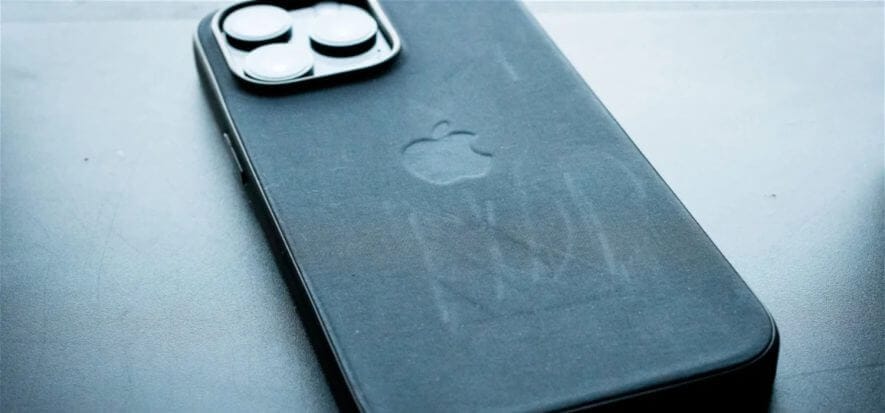A bluff. And, as is often the case with bluffs, short-legged. Just a few weeks have passed since Apple‘s “veg turn”. In order to speed up the achievement of its carbon neutrality targets, it has (among other things) removed leather from the materials of its accessories. A move more useful for marketing than for industrial policy efficiency, as we have said from the start. That is now causing discontent among the Cupertino multinational’s own aficionados, who do not like the new “leather-free” alternatives.
A bluff: but was it worth it?
Apple, in conjunction with the announcement of the veg turnaround, unveiled FineWoven, the fabric alternative to leather that in aesthetics is supposed to resemble (so they say) suede. Consumers feedback is bad. The reviews, from specialised publications like The Verge and generalist newspapers such as La Vanguardia, are negative: the fabric is ugly, delicate for its intended use, and unjustifiably expensive. Quite the opposite of what one would have expected.
But it is not just a problem of merchandising and product positioning. Apple has already been reproached for having sought in the elimination of leather a shortcut to boast results in terms of sustainability, when in fact its production model poses much more complex issues to be resolved. The news that France was one step away from banning the distribution of iPhones for exceeding the maximum radiation levels (a problem that the parent company has remedied with a software update) gives the measure of what the brand’s primary problems really are.
Recognising mistakes
In 2021, Lego was delighted to announce to the world a project to manufacture bricks from recycled plastic. Today, the project is being shelved: the Danish brand, after years of investment and research, has ascertained that manufacturing from recycled plastic gives rise to higher CO2 emissions than traditional production. It would be nice to see the same ability to turn around more often. Elon Musk has never been bothered by the fact that there are aftermarket companies fitting leather into Teslas that he stubbornly sells without. We hope Apple doesn’t make this a matter of pride, but knows how to interpret the dissatisfaction of its consumers (and the fact that Hermès continues to sell its own leather accessories for its devices).
Photo from The Verge
Read also:










